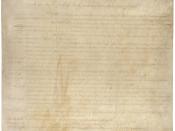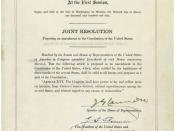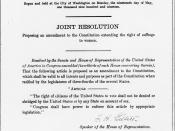Establishment Clause; Religion vs. Government
The First Amendment to the Constitution was passed in 1791. It states "Congress shall make no law respecting an establishment of religion, or prohibiting the free exercise thereof; or abridging the freedom of speech, or of the press; or the right of the people peaceably to assemble, and to petition the government for a redress of grievances." To summarize that up, Congress must not interfere with freedom of religion, speech or press, assembly, and petition.
Two clauses in the First Amendment guarantee freedom of religion. The two clauses are establishment and free exercise. The establishment clause prohibits the government from passing legislation to establish an official religion or preferring one religion to another. It enforces the "separation of church and state". The free exercise clause prohibits the government, in most instances, from interfering with a person's practice of their religion.
But what if this law did not exist? The First Amendment gives Americans the right to participate in the religion of their choosing.
The Establishment Clause forbids the national or state government to establish a religion in the US. Without the Establishment Clause, there would be no freedom of religion. For a moment lets pretend this clause is non-existent. People would be incarcerated for their opinions. There could even be one chosen religion for the whole country that everyone would be forced to believe under law.
On the other hand, there are some negitave aspects of the Establishment Clause. The government cannot help the church in any way. It cannot favor one religion, and it can not give money to churches. This could work in a negative way if a certain church needed funding and was not able to obtain it. I think the government doesn't help religion because of the reaction...


